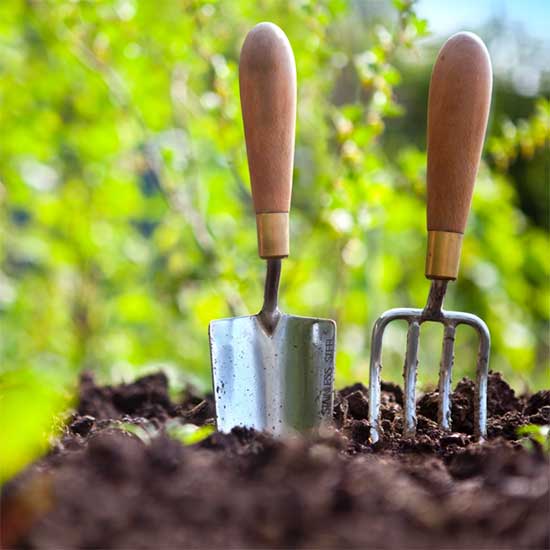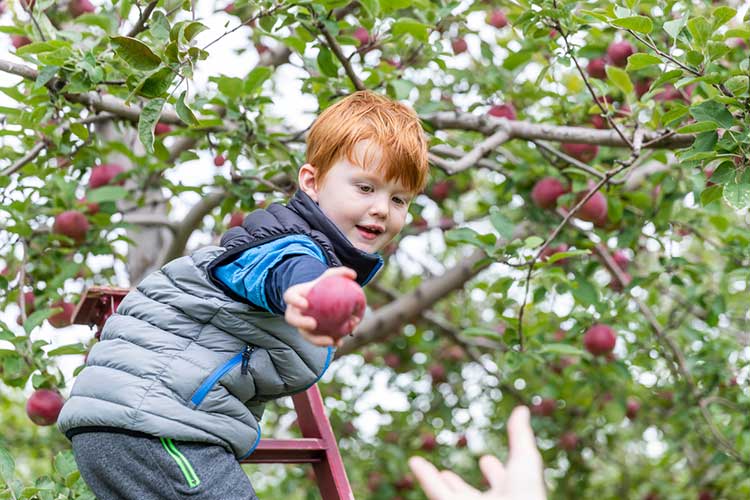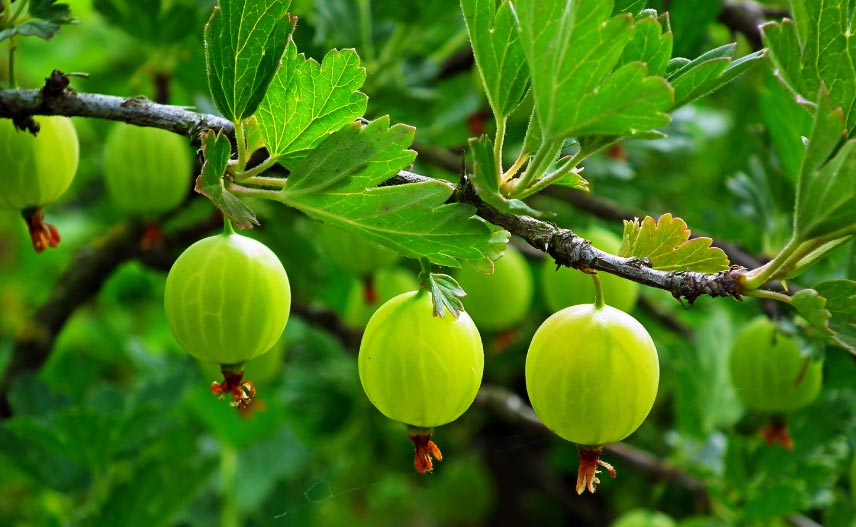You can plant any type of tree in your yard, but there is something truly special about fruit trees. They are spectacular in the spring with their show-stopping blossoms, produce an abundance of fruit in the summer/fall and many have striking fall colour. Fruit trees are surprisingly low maintenance and the result is an abundance of healthy, delicious fruit picked right from your own tree. Adding fruit trees to our landscape improves the yard with its beauty, while helping to support an eco-friendly environment. Though there are many fruit trees that grow well in Ontario, the very best would be Apples, Cherries, Nectarines, Peaches, Pears & Plums. Or try a unique Kiwi plant. We stock many varieties of these fruit trees and our knowledgeable staff can answer all your questions.
Helpful tips to growing successful fruit trees:
1. Choose the correct location for your fruit trees: Fruit trees need sun, shelter, good quality – slightly acidic soil and perhaps most importantly, proper drainage. Fruit trees do not like wet feet. You may want to check the soil prior to purchasing your tree and prepare it beforehand.
2. Choose the right tree: It is important to select the proper variety for climate and hardiness. We are lucky in Southern Ontario, as our climate is conducive to growing many fruit trees. Our Glen Echo staff can assist you in your selection.
3. Water your trees: Watering your freshly planted trees is very important. How often a fruit tree requires watering depends on its age. Newly planted fruit trees require much more frequent watering compared to mature trees, as the mature trees have fully developed root networks and are therefore better able to find and absorb soil moisture. After planting a new fruit tree, irrigate it daily for its first week. Then reduce watering to twice a week for the next month, after which the tree is established. Once established, a once-a-week watering schedule should suffice.
4. Timing: You will want to make sure you are planting the fruit tree at the best time of year depending on the kind of fruit tree you’ll be planting. That could be early spring, late spring, or early fall.
5. Mulch: One of the most obvious reasons for mulching fruit trees is to suppress grass and other weeds that may compete with trees for water and other nutrients. Mulch helps retain moisture in the soil to keep the tree hydrated. Our staff would be happy to help you choose the best mulch for your fruit trees and the correct way to lay down mulch. If you would like more information, there is an excellent article on mulch for fruit trees by Susan Poizner – www.orchardpeople.com.
6. Fertilize: Like flowers, vegetables & other plants, fruit trees also need fertilizers. Most fruit trees benefit from fertilization with a balanced, organic fertilizer for an abundant, nutritious harvest. You will need to check with our staff for the optimum time and fertilizer for the particular fruit trees you are planting.
7. Dormant Oils: Glen Echo recommends using dormant oil on your fruit trees in the early spring. Dormant oil sprays are used on fruit trees before the buds begin to swell and suffocate insects and their eggs nesting in branches. Using dormant oil on fruit trees doesn’t completely eliminate the problem with these pests, but it is the best way to cut off most of the population, leaving a simpler problem later in the season.
8. Pollination: In order for fruit to develop, pollination must occur at blossom time. Pollination is the transfer of pollen from the male part of the flower to the female part of the flower. Some types of fruit trees may be pollinated with their own pollen and are considered self-pollinating. Other types of fruit trees may require cross pollination – pollen from a different variety of the same fruit tree. This is usually accomplished by the ever-important bee or other pollinators such as butterflies or birds. Please consult one of our staff for more information on what you require regarding the fruit trees you are interested in planting.









